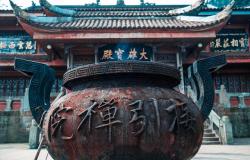
China's growing human rights abuses have attracted the attention of the United Nations (UN) Special Procedures, a central mechanism of the UN's international human rights monitoring system. In response to this growing scrutiny, Beijing has deployed compulsory power through criticism of particular individuals serving as Special Procedure mandate holders and directed funding toward select mandates that align with China's interests; institutional power with repeated efforts to change the rules governing the work of the Special Procedures; and productive power by, for example, introducing the idea that there is a lack of diversity among those serving in the Special Procedures system. China's forceful language had some impact on particular actors, especially UN staff who sought to avoid Beijing's ire. At the same time, China's overall impact on this part of the UN remains modest as the Special Procedures continue to be able to act independently, have spoken out about China's abuses and the selection process has not been captured by Beijing. While there are other parts of the human rights regime where Beijing is able to shape norms, ideas, and procedures, thus far, the Special Procedures have been able to withstand the PRC's projection of power.
Policy Implications
- Member states should protect the selection process for independent experts to serve in the Special Procedures system in order to ensure that individuals with integrity and a commitment to robust human rights scrutiny are able to serve in the UN system.
- Member states should resist pressuring and harassing mandate holders in response to their work raising human rights abuses and violations, and avoid seeking to limit their independence.
- Member states should strengthen opportunities for mandate holders to cooperate and collaborate, such as being able to issue joint statements and press releases, because their collective voice carries considerable moral weight.
Photo by David Besh